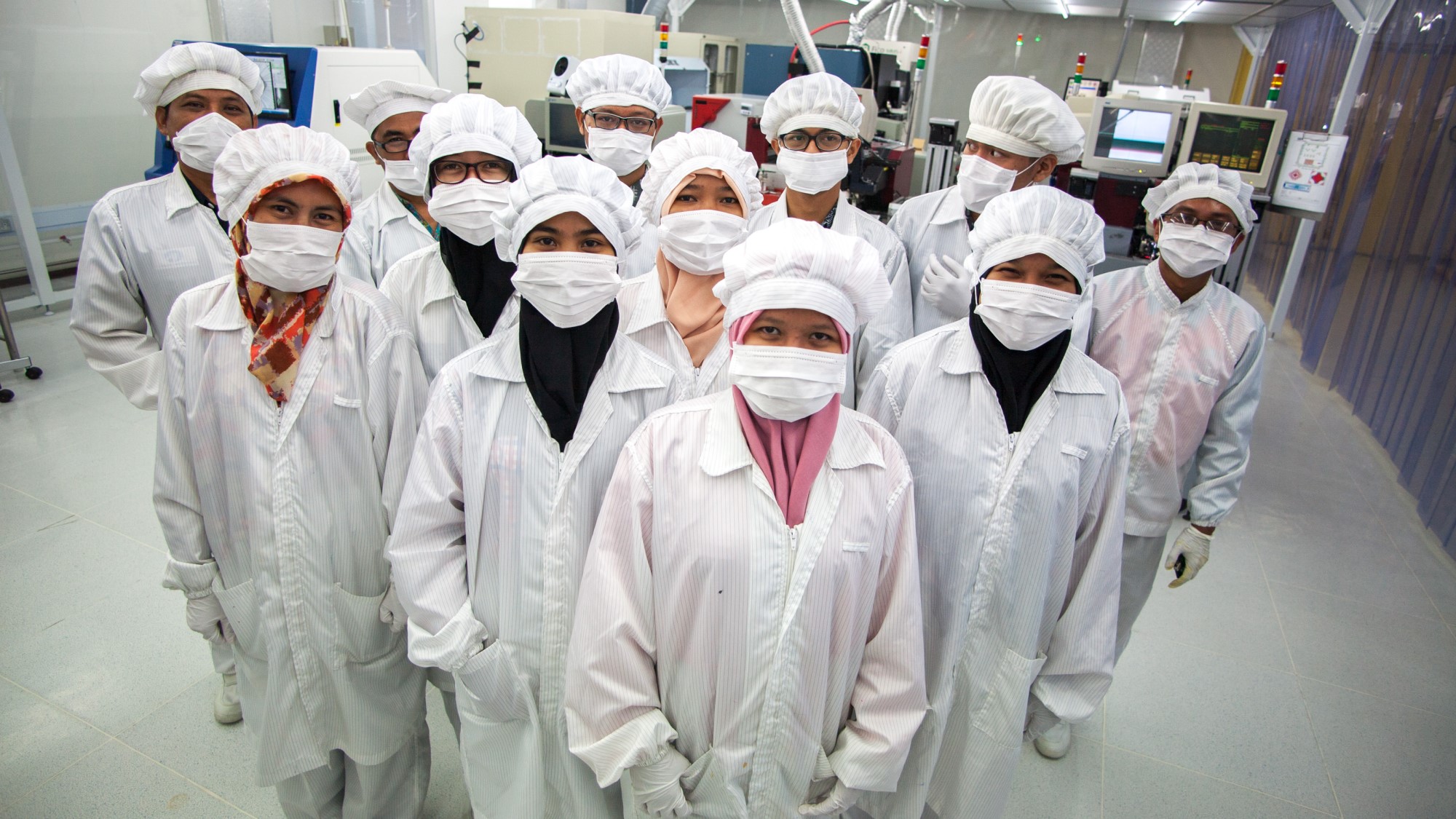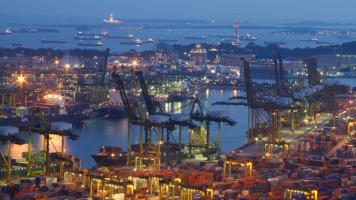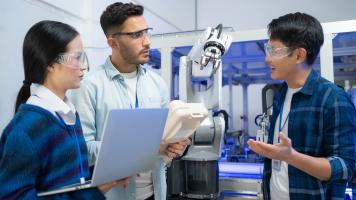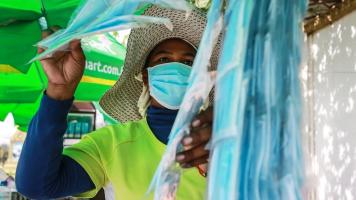
Indonesia improved the entrepreneurial ecosystem and increased the capacity of enterprises to become more export- and technology-oriented, particularly those owned by women. Photo credit: ADB.
An ADB-backed program is helping the country improve its investment climate to attain high-income status by 2045 and transition to a low-carbon economy.
Indonesia has undertaken a range of actions to improve its investment climate to attain high-income status by 2045 and transition to a low-carbon economy.
The Asian Development Bank (ADB) is supporting the country’s development agenda and reform priorities in creating an enabling environment for investments, easing trade barriers, and upscaling enterprises through the Competitiveness, Industrial Modernization, and Trade Acceleration Program (CITA).
ADB recently approved a $500-million loan for the second of three subprograms after the success of the first subprogram.
Toward sustainable and inclusive growth
Business license approvals have been made quicker through an update of the online single-submission, risk-based approach, which integrates national, subnational, and ministries’ processes. In addition, to attract more investment and support Indonesia’s transition to a low-carbon economy, the government deepened subprogram 1 reforms and, among others, promoted investments in energy efficiency and created an enabling environment for more green investments. Foreign direct investment for the manufacturing of batteries for electric vehicles was also approved, including the signing of five high-value contracts, from which at least 49,000 jobs are expected to be created.
To ease trade barriers, the government implemented three new systems under the National Logistics Ecosystem Masterplan (2020–2024) to digitally connect the public and private sectors in the logistics chain, including rolling out an online payment platform for logistics services with six banks implementing a single operating system for port operators. The national single window was enhanced, and the competitiveness of government procurement was strengthened.
As part of its measures to upscale enterprises, the government improved the entrepreneurial ecosystem and increased the capacity of enterprises to become more export- and technology-oriented, particularly those owned by women who are often neither fully aware of nor have sufficient capacity to participate in government procurement. A landmark integrated sex-disaggregated system for micro, small, and medium–sized enterprises (MSMEs) was established, which will be used to track, analyze, and report on the performance of businesses owned by women.
Before the program, the country adopted in 2020 the first national definition of MSMEs owned by women to promote the formal registration of women-owned businesses and support their growth.
Accelerating recovery
For the first subprogram, ADB approved a $500-million policy-based loan in 2021, which also sought to accelerate economic recovery from the coronavirus disease (COVID-19) pandemic.
Indonesia enjoys abundant natural resources, a young workforce, and a large domestic market. The country’s economic expansion has been largely driven by the export of commodities, exposing the economy to deteriorating terms of trade. Annual economic growth had remained at 5% on average until COVID-19 hit, the first time the economy contracted since the Asian financial crisis.
“Indonesia is making good progress in its recovery from the COVID-19 pandemic, but ongoing structural reforms are needed to boost its growth potential by stimulating investment, job creation, improved business climate, and trade,” said ADB Country Director for Indonesia Jiro Tominaga.
This year’s growth outlook for Indonesia was raised by ADB to 5.0% from the 4.8% forecast in April. The report expects strong demand from the country’s large domestic economy to “more than offset slowing goods exports.”
“To achieve high-income status by 2045, the government anticipates that Indonesia's gross domestic product must grow by at least 6.0% annually, significantly above the pre-pandemic average of 5.3%,” Tominaga said. “Policy reforms under the program will help Indonesia attract more investments, including in green and sustainable businesses, ease trade barriers, and empower local enterprises.”
CITA is in line with the Vision of Indonesia 2045 and the National Medium-Term Development Plan 2020–2024, and an integral part of ADB’s country partnership strategy for Indonesia, 2020–2024, particularly the strategic pathway on accelerating economic recovery and strengthening climate resilience.
This article was first published by BIMP-EAGA on 26 September 2023.

BIMP-EAGA
The Brunei Darussalam–Indonesia–Malaysia–Philippines East ASEAN Growth Area, or BIMP-EAGA, is a cooperation initiative established in 1994 to spur development in remote and less developed areas in the four participating Southeast Asian countries.


